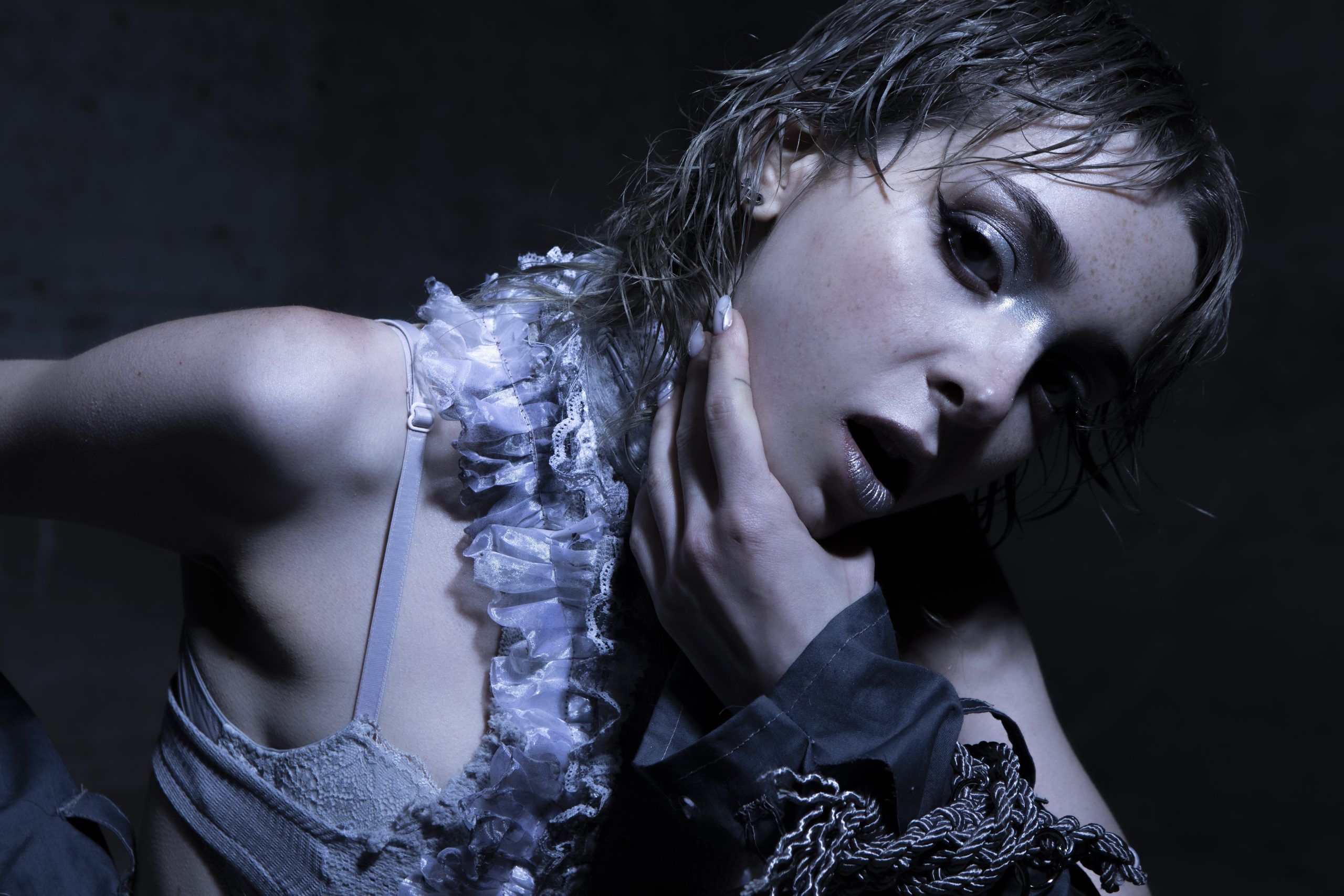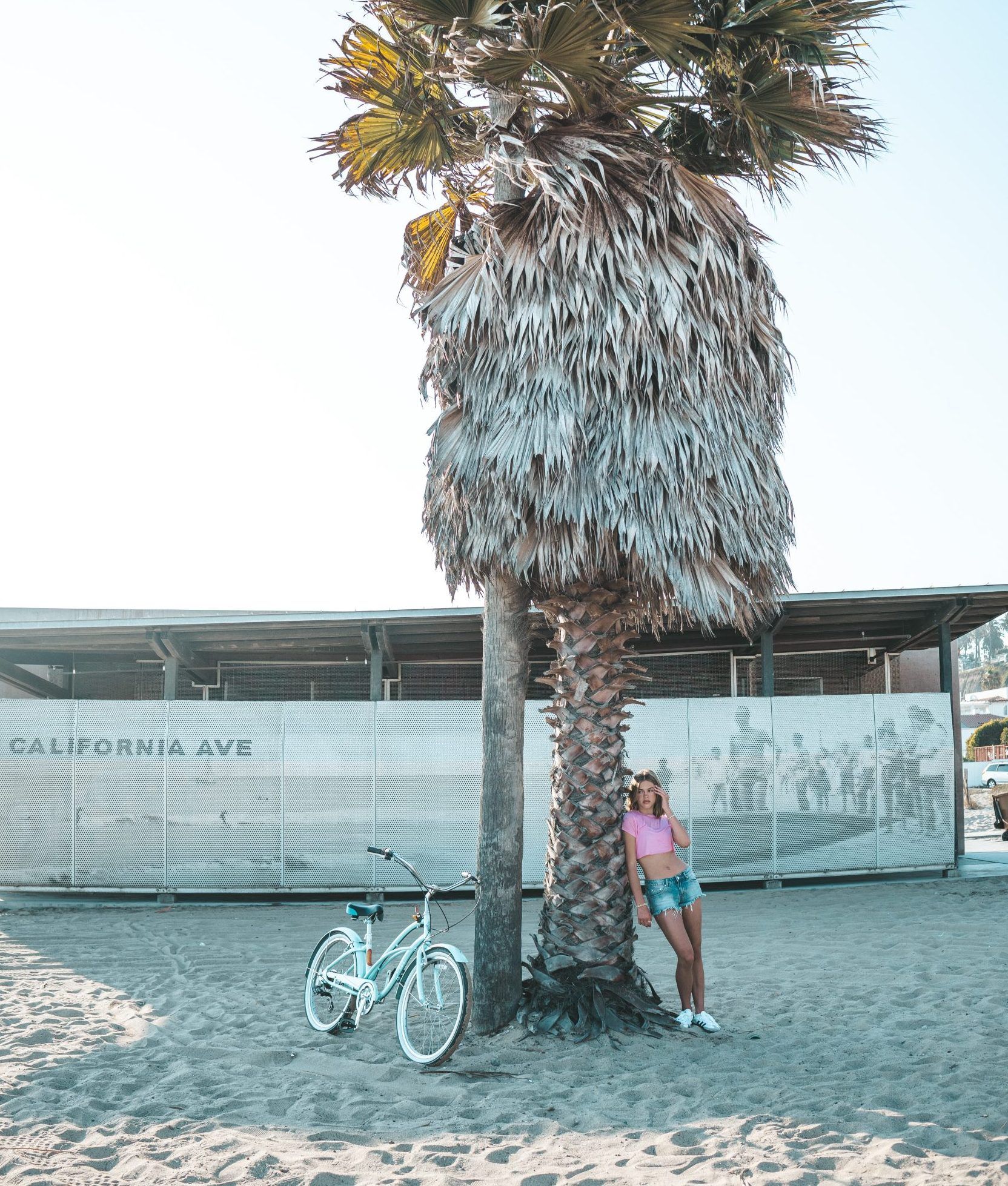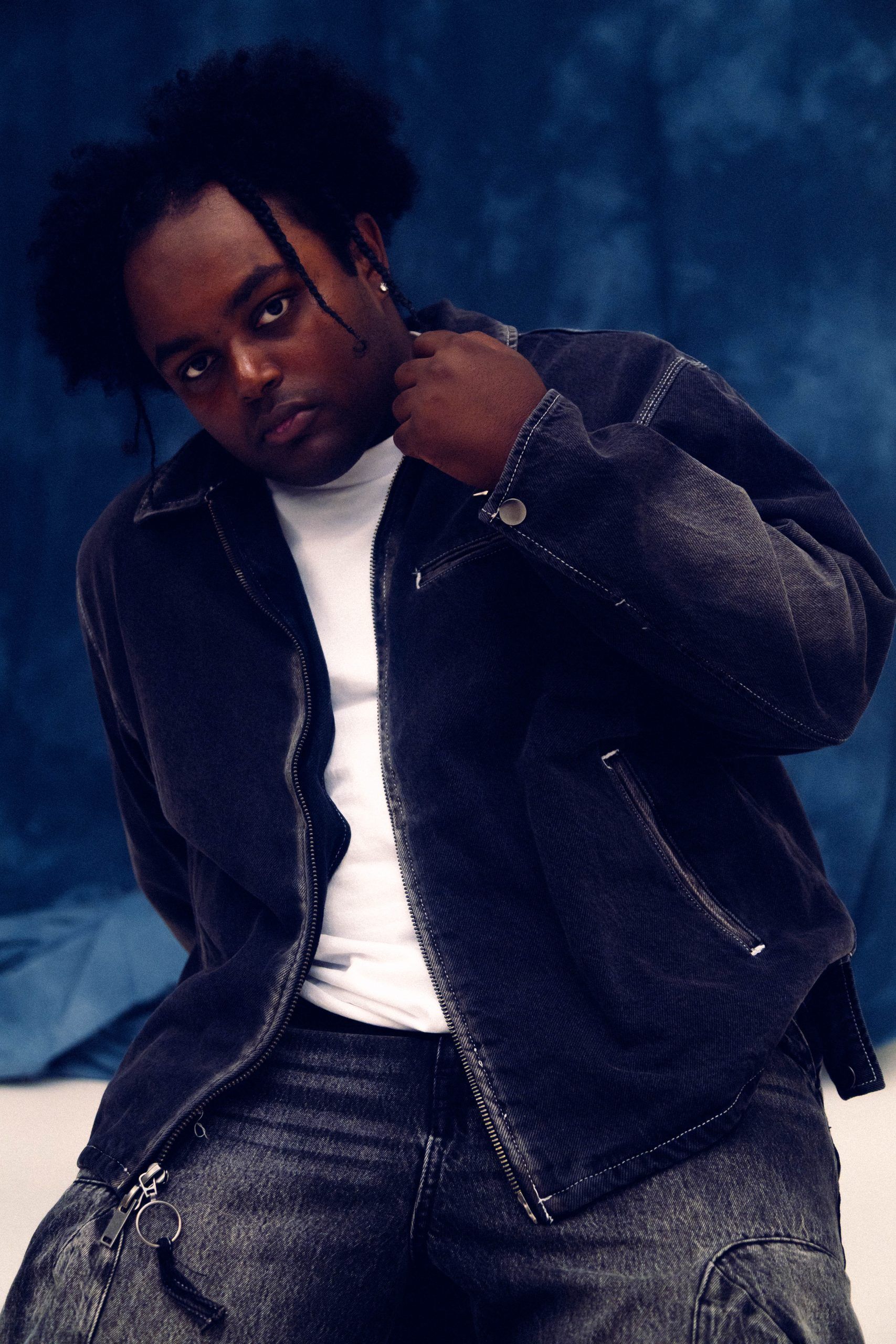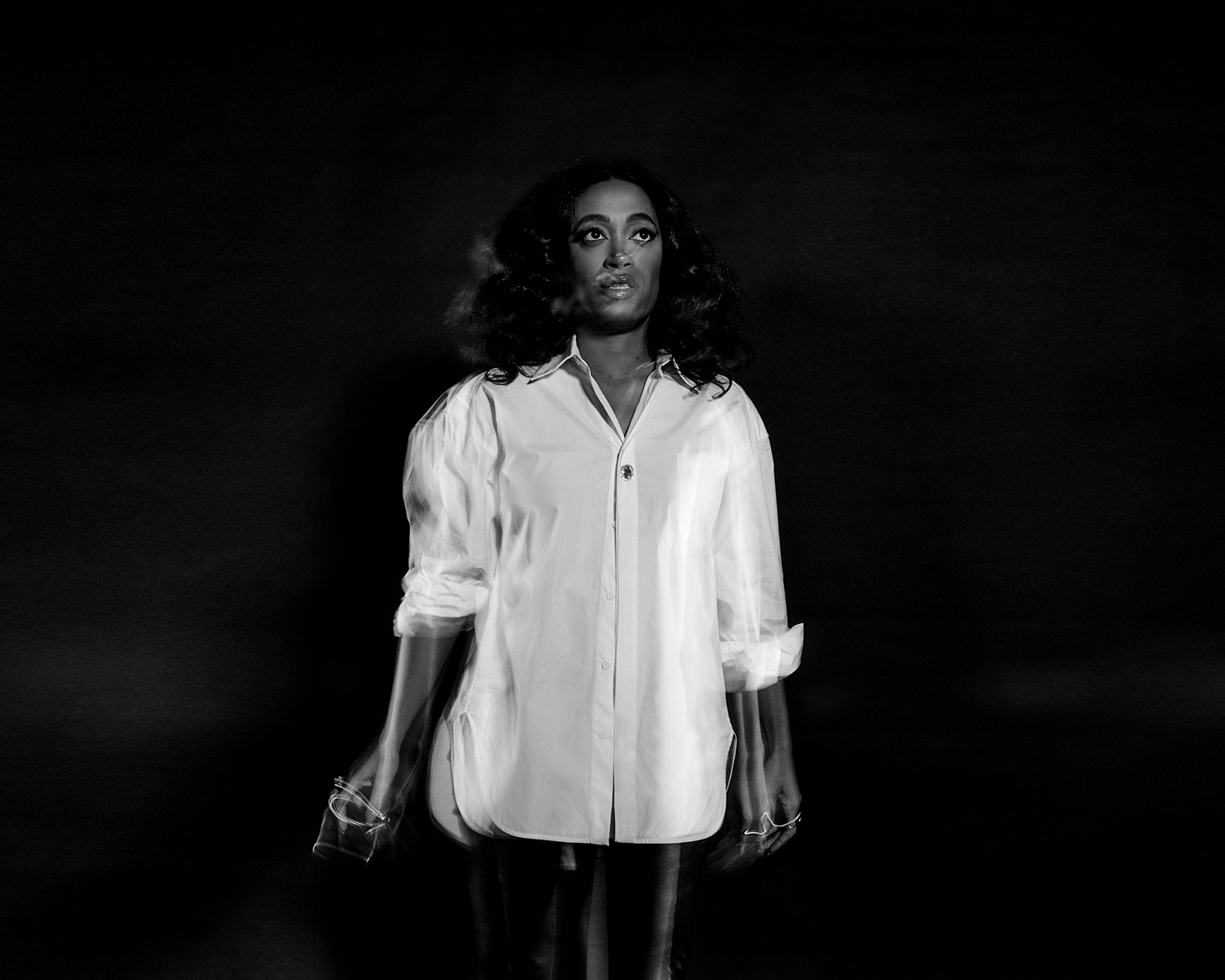One of the strange benefits of modern life is being able to make friends halfway across the world without ever leaving your bedroom. The experience is surreal, but finally meeting the person you know from the magic box is even more so. Musicians Dylan Fraser and Alaska Reid, the duo behind the indie rock band Witch Post, are familiar with the feeling. With Reid based in Montana and Fraser in Scotland, it seemed unlikely that the two would ever meet. Fate ended up turning these two strangers into unlikely bandmates.
The pair’s first meeting was years in the making. It all began when Fraser first heard Reid’s album Big Bunny roughly five years ago during his daily commute on the train. Inspired, he made a cover of her song “Mermaid Tears” and shared it to his Instagram. The duo connected over their shared interest in each other’s sound, namely, their vocals. Both have distinct voices: Fraser’s soft, urgent, and clear, and Reid’s breathy and gruff, framed by a shaky vibrato. After years of virtual correspondence, the pair eventually met when Reid came to visit London. They merged the sounds of their respective solo projects into the song “Vampire”. Eventually, the idea of a band was brought up, and Witch Post came into form.
Unlike other transatlantic groups who rely on swapped audio recordings, Fraser and Reid make music together whenever they can make the journey. This makes for explosive recording sessions and songs that sound like breathless, open conversations. While the adjustment to band life has come with its growing pains, the pair’s debut EP Beast has been gratifying for them both. A collection of conversations that shift between opposite worlds, one gentle and another gruff, the EP has an intentional dichotomy. While the EP is called Beast, the duo explores the heart of this creature in their songs. This balancing of opposites is a through line that defines the duo’s music thus far. From a conversation of opposing dispositions in the grungy “Rust”, to a story of two lovers trying to escape the memory of the other in “Dreaming”, the album is full of moments of ethereal yearning and cathartic rock alike.
It there’s one thing Witch Post knows well, it’s that opposites attract. Still, only a few months into their debut, there’s still a lot more the duo doesn’t know about the future. While other groups might be fearful of the unknown, Witch Post is basking in the mystery.

You guys have spoken a lot about how you met. Obviously people are intrigued because you’re from opposite ends of the earth. Dylan, I read that you made a cover of “Mermaid Tears” and posted it on Instagram, and you guys eventually met up when Alaska came to London. What was that first meeting like?
Dylan: It was really random because we’d been talking on Instagram for a while and Alaska was like, ‘Oh, I’m coming to London in a month.’ We were like, ‘Let’s get in the studio and make something.’ But then, we actually ended up bumping into one another at a gig the night before in London. We ended up going out that night and made the song “Vampire” the next day, which we ended up releasing. But it was more of a collaboration between our both solo projects at the time.
Alaska: I remember you had these jeans on that I was really interested in because they were a really cool cut of denim, but also had like a net over it.
Dylan: Yeah they’re kind of bad thinking back.
Alaska: I actually liked them.
At least they were memorable! And that’s so spontaneous, you guys just running into each other.
Dylan: It was really random.
I feel like meeting people you know from the internet can be so jarring too. You feel like you know them, but you’ve never even seen their face in person.
Dylan: Yeah, and you didn’t even know it was me at the show!
Alaska: I wasn’t sure! Also I feel like anytime you meet somebody from the internet they’re smaller than you think they are, but you were actually just accurately sized.
Dylan: Oh, that’s good. I’m happy with that. I’m glad you didn’t think I was like six feet.


What concert were you guys at, by the way?
Dylan: It was somewhere in Kings Cross.
Alaska: I can’t even remember now. It’s actually pretty interesting. The band is relatively new; we’ve been working on it for over a year, but we’ve known each other for five years, and we just didn’t speak about a band. Dylan was signed to do a solo project, and I was obviously doing my solo project too, so we were just creative buddies and spoke. It was nice because we developed a friendship before we got deeper. We still would write together, but it was just very relaxed.
Dylan: Yeah. We wouldn’t be in a band now if we hadn’t been friends for so long before. We both had our solo things, and that was what we were doing. Neither of us had any plans to be in a band. Like I always said, I’m never gonna be in a band. It just happened really naturally in a way that felt comfortable for us both. And our solo projects will come back at some point as well, I’m sure.
Alaska: It was timing. We kept ignoring the timing, and then we were like, ‘Okay, we can’t ignore it anymore.’ People around us were like, ‘Come on guys, you’re being dumb. People are really excited.’ We just put out a track, and it made people excited. So we were lucky to have people around us who were like, ‘Wake up.’
It makes sense, being reluctant. It seems like you guys are protective of your creative processes as individuals, which makes sense because it can be a vulnerable space. You both just touched on this, but I was curious what it is about each other that makes you feel safe enough to break away from those previous hangups? Like Dylan, you just said you’ve always resisted the idea of being in a band.
Alaska: I think we both have overlapping tastes. We come from not only geographically different places, but musically, we have different things that we tend to go toward. That’s fun because we respect each other’s space. Also, when we’re writing a song, it’s really those two things coming together, and I think that in and of itself is interesting.
I feel like Dylan would say that his stuff has changed a lot since being a solo artist, but the signature way that he uses his voice, the melodies that he chooses, and just the things that he gravitates towards are the same. You’re lucky when you meet somebody that has something so distinctive like that. That’s what I felt when I met Dylan. There are distinct things he has that are interesting and powerful, like the way he sings and the melodies he writes. All of that made the whole thing feel intriguing and like, ‘Whoa, it would be so cool if we could write together.’
Dylan: I agree. To touch on what Alaska said, I think that we both have things about the way that we write that are almost alien to one another. It’s different from the way that we would ever approach things. That’s what was so intriguing. We enjoyed what each other was doing, but we were also like, ‘Oh, I would never have done that thing.’ I really like that. That’s what made me really intrigued, especially about Alaska’s stuff, because she has such a distinctive voice as well. That drew me in because I really gravitate towards people’s voices and lyrics. Alaska just felt really unique to me, and that was what was exciting about it. I’m not excited about a lot of singers.
Alaska: Yeah, I’m not either. I think we were really excited about each other’s voices and just the possibility of, ‘Oh, what would it sound like if he’d sing something that I was writing?’ We really do that for each other, even when we’re writing now, which is really cool.






Going off of that, how would you guys describe your individual sound versus your sound as a band?
Dylan: When we met, I was signed at the time. I was doing music, but my first three EPs that I’d done under my solo thing were a big experiment. I was just figuring out what I liked musically and what I wanted to do. I was also really young at the time, and you look back at your stuff and you’re kind of like, ‘Oh fuck, gosh, I wish I didn’t put that out. You know?
[Laughs] Everybody has that.
Dylan: Yeah, definitely. I’m still proud of it in ways, but I’m kind of cringed by some of it too. So I think I’ve come into myself more in the past few years, even since I stopped releasing my solo stuff, honestly. I just have a slightly different perspective.
That makes sense. And how about you, Alaska?
Alaska: I’ve been on this path for a really long time. I’ve been doing music for over 10 years at this point. I started young, but I don’t know, I mean it expands all the time with the band. Again, there are things that Dylan pushed me to do at first that were like, ‘What?’ That is what makes it different. This is a democracy. We’re a band. We’re a team. I need to be open-minded.
Dylan: And same with me.
Alaska: I think it’s that open-mindedness, honestly, is what makes this sound different. When you’re in a band, it can’t just be Alaska’s 20-year-old girl diary, which is what I’ve done in the past. It’s been really important for me, but I think I’ve been pushed. Also, as you get older, you start to find yourself less interesting and find all the stuff in between more intriguing. Everything becomes a little bit holistic in terms of your view of the world. I did my thing where I shared the diary of who I was, and maybe I’ll do that again, but you just grow.
Every time you do a record, even with this EP, we grow. I think that’s what’s been really fun with Witch Post is to lean into that and not feel that I have to do something in particular. We like to have a lot of mystery in this, too. The thing with being a solo artist is, yes, you can imbue it with mystery, but still, it’s just you. Even being on stage, and it’s not just people looking at me, has been a really fun thing. Usually when I’m doing my solo project, everybody’s being like, ‘What the fuck? This girl’s being so slow tuning.’ I think with Dylan we can pick up each other’s slack, and that has been a really fun thing to play with.
I love that you’re able to be a team and grow together while exploring a new evolution. I feel like that’s a lot of what art is, really. It’s like, I don’t know that I’m tied to one certain genre. I’m exploring what I’m exploring. Obviously, with that teamwork comes some growing pains. I was curious if you guys had an example of a song on the EP that you guys had a disagreement on but ended up compromising on and really loving.
Alaska: Do you want me to take this one?
Dylan: Go for it.
Alaska: You know what I’m gonna say. I think “Dreaming” is really special. All the songs are really special for us, but this was truly a meeting of the minds because we had to push through some things. In that song, we have a three-part chorus with the lines, “I know what you think. I’ve been caught up in a dream.”
We worked hard to push ourselves out of our comfort zone vocally doing this harmony, and then we were kinda struggling with the verse. Dylan had this riff that had a half-step thing in it, and I kept being like, ‘Oh, I don’t know, it feels unresolved.’ We had a really long day of trying tons of stuff over it, under it, and it was just chaotic. We were trying all these different verses, and then we finally landed on something simpler. But it was really a discourse back and forth that sometimes involved us each being, ‘Fuck, we need to go on a walk’’ cause we were so pissed.
Dylan: Yeah we were getting pissed at each other. But it wasn’t in a bad way, it was just in a band way.
Alaska: We just couldn’t crack it and were approaching it from many angles, and we each had these things that the other was like, I don’t want that.
Dylan: But then, finally, it came together.



It sounds like y’all had a healthy coping mechanism of like, ‘Okay, we just take a break or else we’re gonna kill each other.’
Dylan: Yeah, and we never get into crazy fights, just little things.
Alaska: Exactly! And now I’m like, fuck, I’m obsessed. That’s one of my favorite songs on the EP just because I could not have written that by myself. It really feels like an amalgamation of our styles. I wouldn’t have gotten here by myself.
Dylan: Yeah. Same.
A lot of your songs sound very conversational, and you can really hear that collaboration in the songs as well. One thing I wanted to touch on: in some past interviews I was reading with you guys, you’d mentioned that you wanted to channel the essence of bands like Fleetwood Mac or The Cure. I was curious if you had any other important influences for the band, whether it be music or films or books?
Dylan: There are so many, but I’ve been listening to a lot of The Waterboys. Sonic Youth. Pixies. I’m obsessed with Kim Deal’s new record at the moment. I gravitate towards music that has rock sensibilities, but pop sensibilities in the writing. It’s catchy but also on the more alternative side of rock music. It’s not just straight up like driving rock, it’s a little bit weirder. Minus The Waterboys, I’m very drawn to female vocals. I love Kim Deal’s vocals on songs. It just feels cool to me and I like all the weird tune-ins.
Alaska: Going back to your question about what our impressions of each other were when we first met, vibe is not enough for us. In our eyes, we’re succeeding at writing songs that are not just vibey, but catchy, real songs. They’ve got content and have real things behind the lyrics. Especially if you’re an indie rock or rock band, you can get away on vibe,s and that is not what we’re here to do. I love The Replacements. Paul Westerberg is a really structured, awesome songwriter. Dinosaur Jr., J Mascis is writing these choruses and riffs that are so catchy. I think that’s a through line in all of our music: stuff that can’t be background music.
Dylan: We’re not interested in distant vocals with an electric guitar.
Alaska: We mix our voices very forward. The person we work with knows we’re very vocal, which is nice, because that’s a very important part of us.
I love that you’re not going for just straight vibes. It definitely comes through. You guys sort of touched on this, but I was curious, who are you both listening to now? What’s on your radar?
Dylan: For me, it’s been Kim Deal’s new record. I’m obsessed with it. I love the drums on it. I love her voice. There are some really gentle moments on it too, and it’s nice to hear this side of her. I also think it’s maybe the first solo record she’s done, so it’s intriguing to hear how it sounds quite different from her other stuff. It’s been nice to deep dive into some interviews she’s done and really figure out what the songs are about. The album has so much variety, too. It goes from really swinging songs to electronic-feeling ones. Then there are ones that have crazy drums. I’m not bored. I hateit when I feel bored with an album. I like that she keeps it interesting. I’d say that’s the main one I’m listening to at the moment.
Alaska: I’ve been listening to select songs from Lainey Wilson’s album Bell Bottom Country because I just love her. The melodies are ambitious, and I think she’s an awesome singer. I’ve also been listening to a lot of classical music. I’ve been listening to a lot of Bach because I find it relaxing, especially when we’re working on our stuff. It’s nice to have something that is not lyrical at all.
It’s like a reprieve?
Alaska: Yeah. I listen to Yo-Yo Ma playing the Bach stuff. That’s been really fun to check out with. I listen to all this stuff, I always listen to too. There’s a Talk Talk record called Spirit of Eden I’ve been enjoying as well because I like how it all runs together. We’re finishing up our second EP right now, so it’s cool to listen to stuff that has really interesting sound textures in it.


Has that been an influence for the next EP?
Alaska: No, not concretely. It’s funny because everything’s like an influence for the next EP. I mean, we’re not gonna do a jazz solo, but our thing is always like, ‘Oh, it could be cool to have something with the spirit of this.’ It’s from all different corners of the music world.
Dylan: I think we’re just always absorbing things, even subconsciously. And that goes into what we make.
It’s a bit of a process, then. This last question is a bit random, but I thought it would be fun to explore. You guys are from such different places and travel a lot for your work. I was curious if either of you guys had a favourite place you’ve travelled to or made music in?
Alaska: I love making music in Montana, where I grew up. I find it really nice. I like the space to make music there. Then there’s England and Scotland. I’m blown away by this place, and obviously I’ve met a lot of people in my life here that have changed my life, so that’s probably my answer. I love being here. But a random place I’ve travelled that kind of blew my mind is Monument Valley. I’m sorry, but it’s got a really cool vibe there. Where do you like to go?
Dylan: For me, probably Montana, I find it quite hard sometimes to write in London. When I go home to Scotland, I find it easier to write there too. I think I get a lot of ideas when I’m there. But it’s the same with Montana. I just like space. Scotland and Montana have nice scenery around that you can take a walk in. It’s really nice to have that. Also, no one can reach you there. No one can be like, ‘Oh, you have to do this thing.’ Oh well, I’m in the mountains.
That’s one thing I love about living where I am. There’s a peacefulness here.
Alaska: Are you in the Blue Ridge Mountains?
Yeah, I’m in the foothills of the Blue Ridge. You’ll be passing by a fast food joint, but then you look straight ahead, and it’s this beautiful mountain view. It’s an interesting dichotomy. But anyway, is there anything else you guys wanted to add? You mentioned an upcoming EP, and obviously Beast just came ou,t if you want to touch on those.
Alaska: The new EP is gonna lock in with Beast. It’ll be a special dialogue. They’ll be very different, but there’ll be themes because we want it to feel like two different sides. We have dreams of making cool vinyl. It’s gonna interlock.
Awesome. Is there anything you’re looking forward to until then?
Dylan: Yeah, we’re in London right now and we’ve got a show on Thursday.
Good luck! That’s exciting.
Dylan: Thank you! Yeah, it’ll be fun. We’re actually ready for the shows to be over, honestly, because we’re about to start writing.
Alaska: Yeah, we’re ready to get into that headspace.



Beast is out now.
Interview Camryn Teder
Photography Garry Jones





